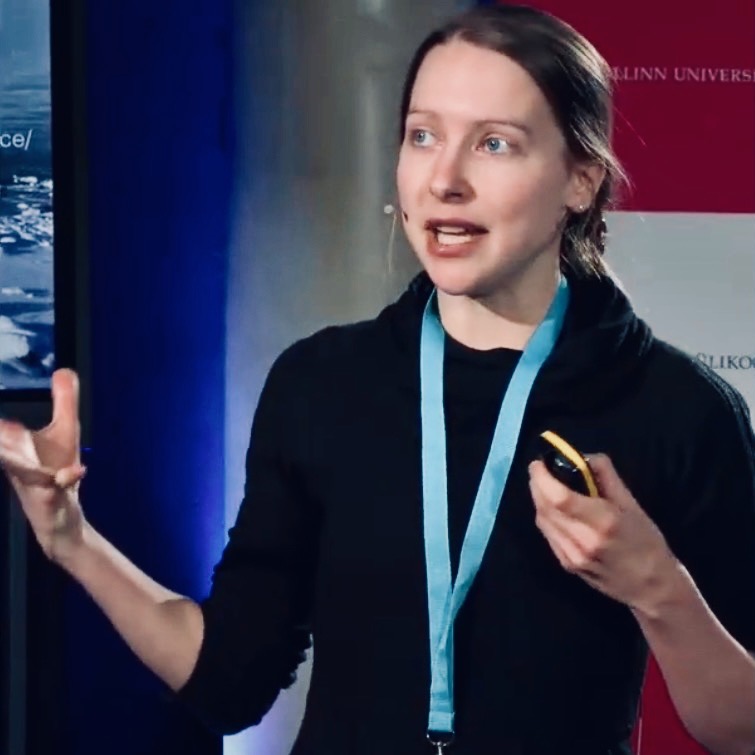We show that there is no distributed quantum advantage for any linear program and give a new separation between quantum algorithms and classical algorithms.
Publications
Computer-Science Conference Proceedings
A*, 26.9% acceptance rate.
PDF | Code | Poster
We introduce RINGS, a principled framework to assess the quality of graph-learning datasets by measuring differences between the original dataset and its perturbed representations.
We present the shell-decomposition algorithm, a model-agnostic meta-algorithm that efficiently computes a (2+Ɛ)-approximation to Constrained Forest Problems for a broad class of forest functions describing network design problems with edge subsets as solutions.
A*, 27.5% acceptance rate.
PDF | Code | Replication Material | Poster
We introduce Presto, a topological framework to explore and exploit representational variability in latent-space machine-learning models.
A*, 22.1% acceptance rate.
PDF | Replication Material | Slides | Poster | Teaser
We introduce Gamine, a fast greedy algorithm for reducing the exposure to harm in recommendation graphs via edge rewiring, based on the theory of absorbing random walks.
A*, 31.8% acceptance rate.
PDF | Code | Replication Material | Poster
We develop Orchid, a flexible framework generalizing Ollivier-Ricci curvature to hypergraphs, prove that the resulting curvatures have favorable theoretical properties, and demonstrate that they are both scalable and useful to perform a variety of hypergraph tasks in practice.
A*, 15% acceptance rate (oral ~5.5%).
PDF | Replication Material
Given a set of graphs and a partition of these graphs into groups, we introduce Gragra (Graph group analysis) to discover what graphs in one group have in common, how they systematically differ from graphs in other groups, and how multiple groups of graphs are related.
PDF | Replication Material
We introduce the duplicated phrase detection problem for legal texts and propose the Dupex (Duplicated phrase extractor) algorithm to solve it, leveraging the Minimum Description Length principle to identify a set of duplicated phrases that together best compress the input text.
A*, 15.4% acceptance rate.
PDF | Code | Replication Material
We treat graph similarity assessment as a description problem, rather than as a measurement problem. Having formalized this problem as a model selection task using the Minimum Description Length principle, we propose Momo (Model of models), which solves the problem by breaking it into two parts and introducing efficient algorithms for each.
29.4% acceptance rate.
We give a simple and (in the extended version) fully self-contained proof of the KMW lower bound, proving a hardness result for several fundamental graph problems in the LOCAL model of distributed computing.
Journal Articles and Book Chapters
PDF | Code
We introduce pymnet, a Python package providing essential data structures and computational tools for multilayer-network analysis and visualization.
PDF | Dataset | Replication Material
We introduce temporal hypergraphs as representations of legal network data, demonstrating their utility in case studies on legal citation networks and legal collaboration networks.
PDF | Dataset | Code | Slides | Video
Raw data stem from all of Shakespeare’s plays / We model them as graphs in many ways / And demonstrate representations matter.
Building on the scientific literature regarding reproducible research and peer review, we introduce seven foundational principles for creating a culture of constructive criticism in the transdisciplinary field of computational legal studies.
PDF | Replication Material
Building on the computer science concept of code smells, we initiate the systematic study of law smells (i.e., patterns in legal texts that pose threats to the comprehensibility and maintainability of the law), introduce a comprehensive law smell detection toolkit, and demonstrate its utility on twenty-two years of legislation from the United States Code.
Theoretically grounded in systems theory and complexity science, we propose structural comparative law as a data-driven approach to explore the similarities and differences between the structures of legal systems.
PDF | Appendix
We present a comprehensive framework for analyzing legal documents as multi-dimensional, dynamic document networks and demonstrate its utility by applying it to an original dataset of statutes and regulations from two different countries, the United States and Germany, spanning more than twenty years (1998–2019).
PDF | Dataset | Replication Material
We examine 25 years of statutory legislation in the United States and Germany through the lens of network science, finding that the main driver behind the growth of the law in both jurisdictions is the expansion of the welfare state, backed by an expansion of the tax state.
PDF | Appendix
A legal data science project investigating the evolution of Germany’s Securities Trading Act over the first 25 years of its lifetime.
Monographs
My computer-science dissertation which, based on my KDD 2021, AAAI 2022, DSH 2023, ICLR 2023, and KDD 2023 publications, explores graphs in five dimensions: descriptivity, multiplicity, complexity, expressivity, and responsibility.
PDF | Appendix
My legal dissertation. I introduce network science to the German legal discourse and explore what legal network science could mean. This is how I got into graphs.
Reports
We present the results of a survey distributed to participants of the first “Learning on Graphs” conference.
PDF | Replication Material
We present the results of a survey distributed to participants of the first “Learning on Graphs” conference.
